

"This We'll Defend" has been our Army's motto since the Revolutionary War. It reminds us that our purpose is timeless and clear: to fight and win our Nation's wars. When our Army hits the dirt, America means business. Our teammates don't want to fight without us, and our enemies are wise to fear us. We are not a Pacific Army or a Europe Army. We are not Brigade-centric or Division-centric. We are a global force that fights when called upon at the scale required.
To do that, we must stay grounded, and dedicate our energy in four focus areas: Warfighting, Delivering Ready Combat Formation, Continuous Transformation and Strengthening the Profession.
When you are downrange and you hear a call sign come over the net, a mental picture comes to mind. When the American Army comes over the net, we want our teammates to know that the best, most disciplined land force in the world has arrived. All of us contribute to that reputation.
We are proud of this team. When we are called, we will answer. and we will win. This We'll Defend!

The Army Posture Statement is the Secretary of the Army and the Chief of Staff of the Army's written testimony to Congress on the state of the U.S. Army. The statement describes where the Army is and what the Army has done over the last year to support the National Defense Strategy.
This unclassified summary outlines the Army’s annual accomplishments, initiatives, and priorities, based on the Army Vision and Army Strategy. It also explains the Army’s budgetary needs for maintaining its strategic priorities in the upcoming fiscal year.
Posture Statement Archive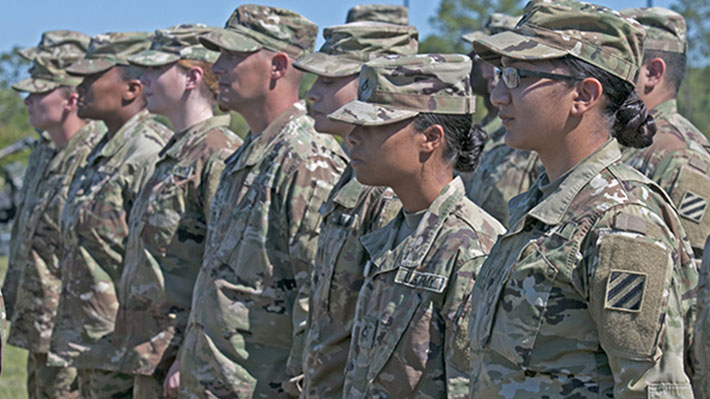
The Army People Strategy is the roadmap the U.S. Army will use to build a twenty-first century talent-based personnel management system, reform essential quality of life programs and build cohesive teams that are ready, professional, diverse and integrated for the Joint Force. The Total Army will acquire, develop, employ and retain the diversity of Soldier and Civilian talent needed to achieve Total Army readiness.

The Army Modernization Strategy (AMS) describes how the Total Army — Regular Army, National Guard, Army Reserve, and Army Civilians — will transform into a multi-domain force by 2035, meet its enduring responsibility as part of the Joint Force to provide for the defense of the United States, and retain its position as the globally dominant land power. AMS is the Army's plan to deliver a Multi-Domain Operations capable force and explains how the Army will operationalize the concept.
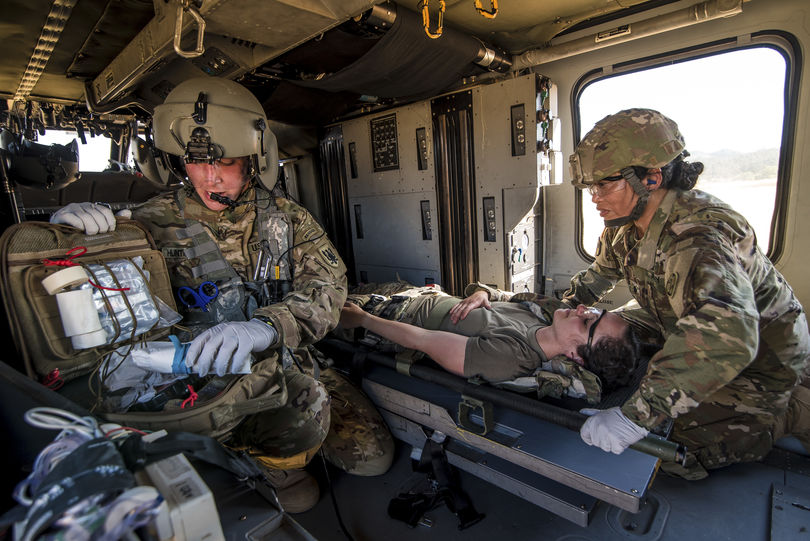
The Army Medical Modernization Strategy (AMMS) articulates how the Army Health System will modernize to provide highly adaptive and effective health care on and off future battlefields. AMMS will improve future medical preparedness, processes and resources by informing new formations, doctrine, organizations and training; materiel development, equipment modernization and procurement, and medical integration with signature modernization efforts; and leader development, education, recruiting, retention and talent management. AMMS fully aligns with and supports the Army Modernization Strategy, and will guide the requirements, priorities and direction of medical modernization efforts critical to enabling future force readiness.

The Army Arctic Strategy supports the 2019 DoD Arctic Strategy and lays out how the Army will generate, train, organize and equip the force to partner with Arctic allies and secure the national interests. The Total Army strategy adapts how the Army executes extended, multi-domain operations in extreme conditions to support the joint warfighter, which demonstrates the Army’s resolve to securing national interests in the region.

The Army Climate Strategy is the framework for a long-term endeavor to operationalize climate adaptation and mitigation across the Army. The strategy drives actions to enhance readiness, resiliency and capabilities of the force. By implementing the lines of effort outlined in the climate strategy, the Army will achieve the goals of a resilient and sustainable land force able to operate in all domains with effective adaptation and mitigation measures against climate change, consistent with Army modernization efforts.

The U.S. Army Installations Strategy is the first strategy to identify the need for modernized, resilient and sustainable installations. This strategy describes how installations will modernize to support the Multi-Domain Operations Ready Force over the next 15+ years.
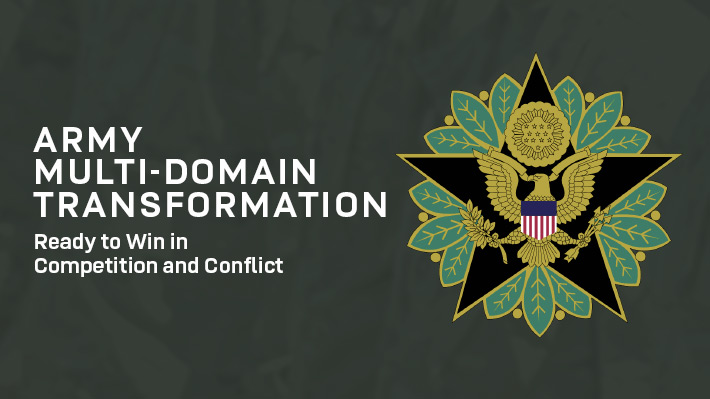
The Army's Multi-Domain transformation will set the conditions for the Joint Force to fight and win integrated campaigns necessary to defeat state actors. By 2035, the Army will enable the Joint Force to maneuver and prevail from competition through conflict with a calibrated force posture of multi-domain capabilities that provide overmatch through speed and range at the point of need.
Army formations and capabilities will provide the necessary speed, range, convergence, and decision dominance required for overmatch in a faster-paced, distributed, and complex operating environment.
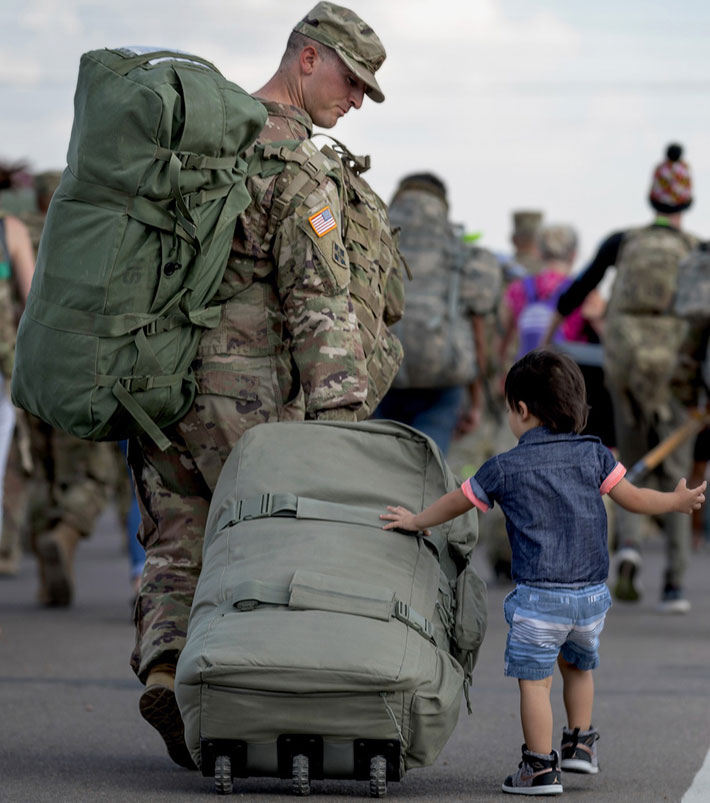
Recognizing that our Soldiers, Civilians and families should have the best quality of life possible, the Army is reviewing the full range of its care, support, and enrichment programs, with an initial focus upon: housing and barracks, healthcare, childcare, spouse employment and permanent change of station moves.

The Army Data Plan, aligned to the Army Vision, sets forth guiding principles, goals and objectives, imperatives, and data management structures to transform how the Army manages, analyzes, and utilizes data to enable data-driven decisions across its enterprise, and with partners, through a resilient, secure hybrid cloud solution.
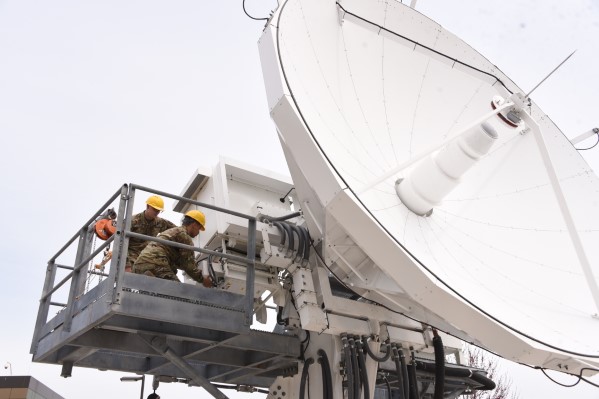
The Army Space Vision communicates to Army commanders, staff and other stakeholders, the importance of space domain effects to successful Army operations and the need to invest in space capabilities and formations. The Army Space Vision describes the Army’s role, both as a user and a provider of space-related systems and formations, to fight and win in multidomain operations.